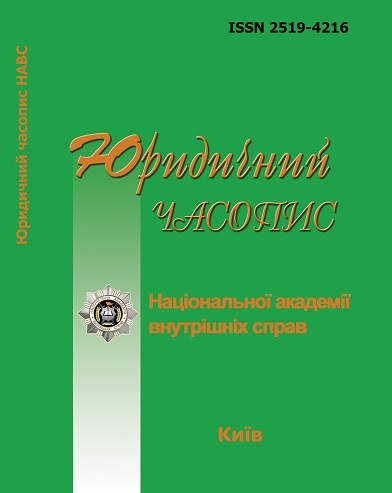Causes and Conditions of Committing Crimes in Social and Budgetary Spheres
Abstract
Offenses that infringe on property, as well as offenses in general are the consequence of the complex circumstances of the social, economic, psychological plan. The most significant factors contributing to the activation of offenses in the area of property ownership relations include the lack of effective control by the state for the use and disposal of state and municipal property, as well as the lack of skills of economic behavior in the conditions of market relations and the increased highlighted by the overwhelming majority of citizens; victimization of the population in this area; distribution of facilities on illegal ways to resolve contradictions by those who failed to adapt to these conditions.
Criminological studies indicate the need to prioritize such phenomena and processes in the economic life of society as the state and development of production, the provision of the needs and interests of the population, not only of a consumer nature, but also those relating to employment, the receipt of people with a stable income, which provides decent living, the size and ways of providing income of various subjects.
The lack of criminoligical ground in provision of economical reform implementation has created conditions that ensures
the possibility of rapid enrichment of criminal groups and individuals at the expense of the state, on one hand, and weaken the ability of law enforcement agencies to combat the negative effects of
reforms – on the other.
Political instability seriously weakens the role of the state as a guarantor and arbiter of civilized economic relations. As a result of the removal of the state from the public-law regulation of implementation economic relations in the context of the formation market maintenance of law and order in many spheres of economic activity was not ensured by the authority and power of the state.
A serious crime-causing factor of economic crime in the budgetary sphere is the corruption of state apparatus and the leading management in non-state sector of the economy.
As it is noted in criminological literature, the defense of a market economy from power is the most important goal of political component of social economy. Social injustice and social troubles are due to restrictions of market competition as a result of "merging business with the authorities. «The conspiracy of the economic and political elites sometimes serves as the underlying cause of all social misfortunes».
The existing legislative problems made the process of conducting tenders and auctions in the field of privatization and the currently creating opportunities for large-scale abuses in the event of bankruptcy of enterprises as well as in the implementation of tax payments to the budget through insolvent banks virtually uncontrolled. During the investigation of criminal proceedings, investigators and employees of the Department of Economic Security found that the thefts of budget funds were carried out by organized criminal groups, which included the heads of «troubled» banks and directors of enterprises that had tax arrears, through a specially created network of companies («one-day»).
Today, the decisive factor in the criminalization of the entire course of reforms was the immorality of politicians and businessmen who came to power. Motivating action becomes dominant, eroding the spiritual and moral foundations of society. In these conditions, a sharp social stratification of society, a decline in the quality of life of big chapter of population demoralizes them, creates tension both within the family and in society, which in turn stimulates the development of criminal violence in social and domestic spheres.
It should be borne in mind that the social status of person who have not been able to adapt to the reforms in the country has changed dramatically, which leads to the widespread adoption of criminal-force methods for solving social contradictions.
Downloads
Abstract views: 123 PDF Downloads: 62
Copyright (c) 2018 Law Magazine of the National Academy of Internal Affairs

This work is licensed under a Creative Commons Attribution-NonCommercial-NoDerivatives 4.0 International License.
- Authors reserve the right to authorship of their own work and transfer to the magazine the right of the first publication of this work under the terms of the Creative Commons Attribution License, which allows other persons to freely distribute published work with mandatory reference to authors of the original work and the first publication of an article in this magazine.
- Authors have the right to enter into separate additional agreements on non-exclusive dissemination of the work in the form in which it was published in the journal (for example, to post an article in the institution's repository or to publish as part of a monograph), provided that the link to the first publication of the work in this journal is maintained.
- The journal's policy allows and encourages the posting of articles by authors on the Internet (for example, in electronic storehouses of institutions or on personal websites), both before the submission of this manuscript to the editorial office and during its editorial processing, as this contributes to the creation of a productive scientific discussion and positively affects the efficiency and dynamics of citing the published work.




